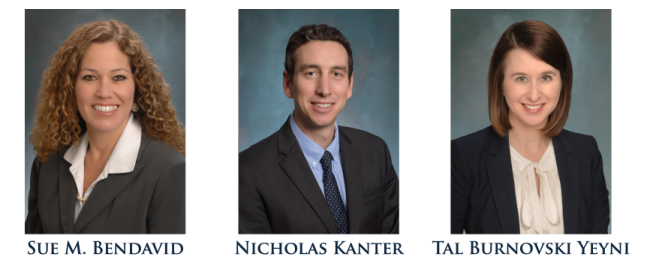Goodbye 1099; Hello Employer Uncertainty

Last year (April 2018) the California Supreme Court rocked the boat with the seminal Dynamex decision, which created very high barriers for companies who utilize independent contractors. On September 18, 2019, Governor Gavin Newsom signed Assembly Bill 5 codifying the Dynamex decision. The Governor’s signature was not surprising given his recent endorsement of the bill.
AB 5 Background

Before April 2018, a worker’s status (independent contractor vs. employee) was determined by the “multi-factor” test adopted by the California Supreme Court in S. G. Borello & Sons, Inc. v Dept. of Industrial Relations (1989) 48 Cal.3d 341 (“Borello”). Under Borello, not one factor was controlling by itself, and the determination of whether a worker was an employee or independent contractor depended on various factors.
Last year, the California Supreme Court in Dynamex Operations West, Inc. v, Superior Court (2018) 4 Cal.App.5th 903 replaced the multi-factor Borello test with a more rigid “ABC” test. Dynamex held that for purposes of Wage Order compliance, e.g., minimum wage, overtime, breaks, etc., a worker is presumed to be an employee unless the hiring entity establishes all of the following factors:
(A) The person is free from the control and direction of the hiring entity in connection with the performance of the work, both under the contract for the performance of the work and in fact.
(B) The person performs work that is outside the usual course of the hiring entity’s business.
(C) The person is customarily engaged in an independently established trade, occupation, or business of the same nature as that involved in the work performed.
ABC Is (most likely) Coming for You
Assembly Bill 5, which goes into effect January 1, 2020, expands the ABC test application beyond wage order claims, and applies it to Labor Code and Unemployment Insurance Code claims as well.
In an effort to accommodate various professions, AB 5 created various exemptions, subjecting them instead to Borello.
These exemptions include licensed individuals, like insurance agents, physicians, surgeons, dentists, podiatrists, psychologists, veterinarians, lawyers, architects, engineers, private investigators, accountants, securities broker-dealers, investment advisors, certain direct salespeople, commercial fishermen, and real estate licensees if not exempt under the Business and Professions Code.
For other exemptions AB 5 mandates that for Borello to apply, the contracting entity must first satisfy certain requirements pertaining to the service provider’s independence, e.g., ability to set own rates, hours, and working terms; services to others; independent discretion; own tools and equipment, etc.
The exemptions subject to the preliminary test requirements include business-to-business contracting relationships, referral agency-service provider relationships, contractor-subcontractor relationships, and professional services relationships.
“Professional services” means:
- Marketing (original and creative work)
- Administration of human resources (intellectual and varied work)
- Travel agent services
- Graphic design
- Grant writer
- Fine artist
- Services of enrolled agents licensed to practice before the IRS
- Payment processing agent through an independent sales organization
- Services by certain photographers and photojournalists
- Services by certain freelance writers, editors, or newspaper cartoonists
- Services provided by certain licensed estheticians, electrologists, manicurists, barbers, or cosmetologists;
Retroactive Application
Concerning the issue of retroactivity, AB 5 states it “does not constitute a change in, but is declaratory of, existing law with regard to wage orders … and violations for the Labor Code relating to wage orders.” We interpret this to mean that ABC applies retroactively to various wage and hour claims, namely minimum wage, overtime, breaks, and record keeping.
However, for existing claims, AB 5 states that if an exemption would relieve an employer of liability, it “shall apply retroactively.”
As for all other claims, e.g., reimbursement, pay stub penalties, etc., AB 5 states it will have a prospective application “to work performed on or after January 1, 2020.”
Bottom Line
From a legal standpoint, AB 5 will make classification of workers as independent contractors a serious challenge. To limit costly litigation, companies are strongly advised to audit their practices and consider a change. For entities which may be covered by one of the exemptions it is highly recommended to review service contracts and confirm the various legal requirements are satisfied.
Notably, AB 5 does not permit companies to reclassify employees as contractors, simply because they can fit one of the exemptions.
As always, we are here to help navigate through the legal challenges of California employment laws.
Sue M. Bendavid, Nicholas Kanter and Tal Burnovski Yeyni are employment defense attorneys.